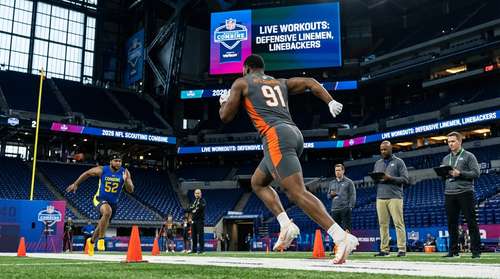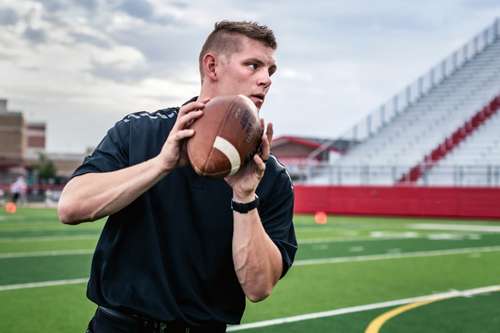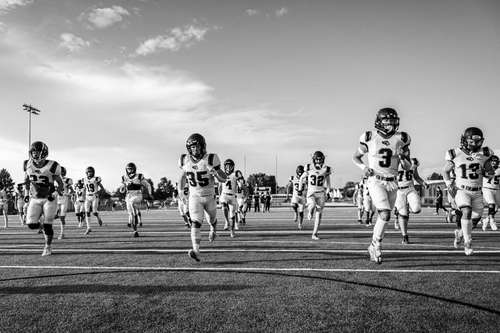This revelation has rattled the football world. An arbitrator recently found that the NFL allegedly encouraged teams to collude when negotiating guaranteed contracts for players. Fans and pundits alike are buzzing with questions about fairness and transparency in the league. It’s a topic that’s bound to raise eyebrows and spark intense debate among players, agents, and die-hard football fans even if it seems buried deep within contractual jargon.
The decision is shaking up what we thought was common practice in professional football. Many wonder, could the integrity of player evaluations and contract negotiations be compromised if teams were advised to avoid fully guaranteeing contracts? Questions like these are now at the forefront of discussions in sports news circles and legal debates regarding the NFL.
The Arbitrator's Findings
This section dives into what the arbitrator uncovered, offering insights into the alleged collusion by NFL teams.
The arbitrator's legal ruling suggests that certain NFL teams may have been coached on how to structure player contracts in a way that sidesteps full guarantees. This finding implies a deliberate effort to limit player security while potentially giving teams more leverage in negotiations. The investigation report detailed how the phrase "encouragement" could be interpreted as advising teams to limit guaranteed contracts, making it clear that the NFL's penchant for creative contract structuring may have had hidden motives. The legal decision has now opened up a wider discussion about transparency in player contracts and how collusion might affect the balance of power between owners and players.
It’s hard not to draw parallels to a game of chess, where one misstep can lead to a losing position. In this case, the arbitrator’s ruling is like a critical move that exposes underlying strategies too frequently used in NFL contract negotiations. Still, one has to wonder what this means for the future of Sports Law and Arbitration in the league. The reasoning behind the decision indicates that what might have once been considered smart business is now under legal scrutiny.
Some legal experts argue that if collusion was indeed promoted, it would not only disrupt player contracts but also harm the long-time trust that fans place in the NFL. The arbitrator’s finding calls into question whether the agreed-upon culture in the league was designed to put profits before fairness. For many, this legal ruling is an eye-opener—an invitation to reexamine a tradition that has shaped contract disputes and professional football as we know it.
Implications for Guaranteed Contracts
Here, we discuss how these findings can impact the way player contracts are negotiated moving forward.
Guaranteed contracts have long been a benchmark in player compensation in the NFL, representing a player's financial security and the trust placed in their ability. However, the arbitrator’s findings signal that the encouragement to steer away from issuing fully guaranteed deals might have altered the negotiation process. This situation might have led to a subtle yet significant imbalance in how player contracts are treated in terms of risk and reward. In an industry where every dollar counts, this legal ruling could redefine what players consider a fair deal.
Imagine being a player about to sign a lucrative contract only to learn later that what you thought was a competitive offer was subtly undermined by hidden incentives against a full guarantee. Teams may have been setting the stage for a contract dispute that prioritized team flexibility over individual player security. This has serious ramifications for sports law and the future negotiations that shape player compensation in NFL contracts.
The encouragement to avoid guaranteed contracts could lead players to demand more transparency and fairness in future deals. With the shadow of collusion looming, we might see players, agents, and even team owners adapting their negotiation tactics. This shaking up of old norms prompts us to ask: can the NFL restore confidence in its contract negotiation processes?
For fans who cherish the purity of the game, such developments can feel like a betrayal of trust. Guaranteed contracts once symbolized stability and mutual respect between players and teams. This legal decision forces us to rethink how far the game has strayed from its original values, where winning on the field was mirrored by fairness off the field.
Reactions from the League and Players
In this segment, we explore the fallout and reactions from within the NFL community regarding these serious allegations.
The reaction among players, agents, and fans has been a mix of disbelief, anger, and a thirst for reform. While some insiders claim that the NFL has always maintained a tight grip on contract guidelines for strategic reasons in football, others argue that this arbitrary encouragement to limit guaranteed contracts undermines the player’s rights. What is clear is that the hearing has prompted heated discussions about collusion and sports law in every major sports news outlet.
Veteran players, whose careers were built on negotiated consistency, now face an environment where they must constantly weigh risks against the potential benefits of a contract. Think about it: if you were told to agree to less security for the sake of team control, how would that make you feel? It’s no wonder that many voices in the NFL players association are calling for a renewed commitment to fairness in player contracts.
This legal decision has even rippled into broader discussions on how professional football should operate. For example, some players compared the decision to a wake-up call, urging both the NFL and its teams to take a closer look at how contract disputes have historically been managed. The discussions held over conference calls and team meetings now center on restoring trust between management and players.
Moreover, many believe that if the NFL fails to address these concerns head-on, the resulting legal battles could escalate, potentially affecting the league's public image and financial operations. It’s a reminder that in the world of professional football, even the subtlest of controversies can turn into a storm of attention and scrutiny!
The Future of NFL Contracts and Sports Law
Let’s look at how this legal decision might influence future contract negotiations and the broader landscape of sports law in the NFL.
This ruling is likely to bring a wave of reforms in how player contracts are structured in the future. More transparency in contract negotiations might become a new norm, ensuring that both teams and players engage in discussions that are fair and mutually beneficial. The arbitrator’s findings can serve as a catalyst for change, prompting a reevaluation of practices that have long been kept in the shadows.
For many in legal circles and sports management, this is an opportunity to build better practices around arbitration and contract negotiations. Teams can no longer hide behind vague language or questionable guidelines without risking further legal action. It’s a moment of reckoning where the ideals of fairness might finally catch up with the business side of football.
Going forward, we might see the development of stricter regulations surrounding guaranteed contracts, as the legal decision has laid bare the potential pitfalls in contract disputes. The arbitrator’s role in this case not only redefined guidelines but also hammered home the point that encouraging collusion in contract practices is a breach of trust and fairness. Ultimately, this development could lead to improved relationships between players and team management, laying a new foundation built on legality and respect.
In closing, while the arbitrator’s decision might feel like a setback for some teams used to the old way of designing deals, it is ultimately a win for transparency and fairness. The NFL now stands at a crossroads: either continue with outdated practices or evolve into a body that prioritizes equitable negotiations and open dialogue.
This case reminds us that in professional football, every play counts—not just on the field, but also behind closed doors during contract talks. By shining light on alleged collusion and questionable tactics, the arbitrator has sparked a debate that could transform Sports Law and NFL Contracts forever.




